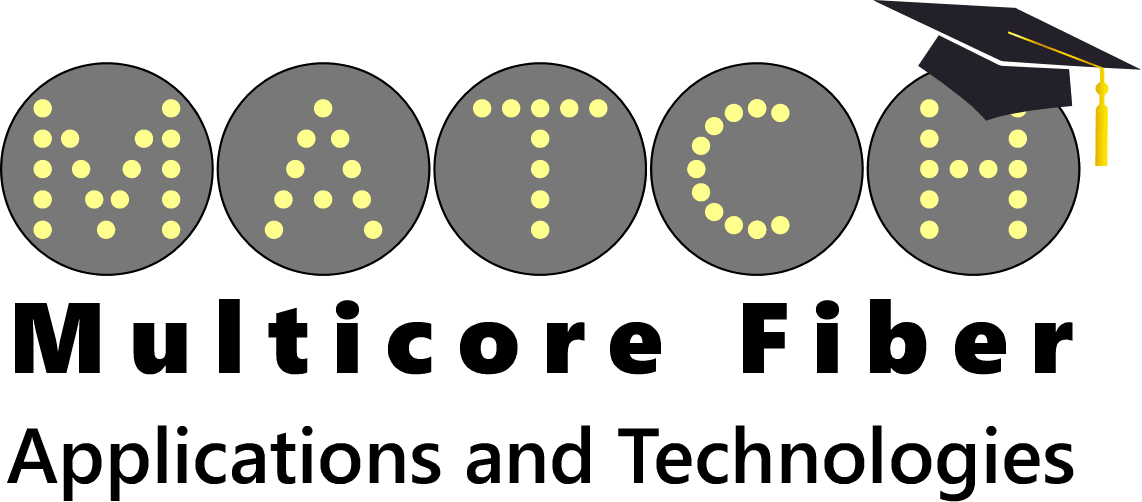Project overview
Multicore fiber Applications and TeCHnologies (MATCH) is a doctoral training network funded by the European Commission, under the MSCA Doctoral Networks 2023 | Marie Skłodowska-Curie Actions, and proposed by a multidisciplinary and intersectoral consortium of international experts.
- MATCH directs PhD research toward multicore fibre (MCF) technology;
- MATCH aims at developing leading solution for scaling future optical fibre communication networks towards emerging information capacities, while offering the potential to lower costs, reduce power consumption and significantly boost network capacity by over tenfold;
- MATCH programme outlines a comprehensive set of research and training objectives tailored to 13 doctoral candidates (DCs);
- The cohort of DCs will be hosted by 15 partners (11 from academia and 4 from the industrial sector);
- The planned training activities of DCs include 32 secondments, 7 mini-symposiums, 3 transferable skills workshops, summer schools, and tutorials, among others.
In MATCH program, DCs will acquire expertise in diverse areas, encompassing:
(i) Design and fabrication of MCFs with transmission capacities surpassing the state-of-the-art;
(ii) Design and implementation of MCF components and subsystems, with a focus on optical amplifiers and switches, multiple frequency comb sources, and parallel-scalable signal processing architectures;
(iii) Development and implementation of machine learning techniques for end-to-end performance optimization of MCF networks;
(iv) Design and evaluation of coexistence of telecom and non-telecom signals in MCF networks.
By engaging the expertise of MATCH academic and industrial partners, DCs will acquire distinct skills and knowledge to transform them to globally-minded scientists and engineers, who will help to shape Europe’s ICT future and societal wellbeing.
Workpackages
WP1 (HCV): MCF design and manufacturing
This workpackage centres on the development of novel MCF designs and manufacturing strategies, with the goal of achieving significantly enhanced capacity surpassing the current state-of-the-art.
WP2 (UNILIM): MCF-based components and subsystems
This workpackage is dedicated to the design and development of MCF components and subsystems, with enhanced features relative to the state-of-the-art. The emphasis lies on the following applications: fan-in/fan-outs, splitter, optical amplifiers, wavelength selective switches, multiple frequency combs, signal processing architectures that scale in parallel, and sensors.
WP3 (INF): MCF systems, networks and applications
This workpackage centres on the experimental demonstration in laboratory and field, along with the theoretical analysis, of MCF applications in enhanced capacity transmission systems. The workpackage is focused also on using machine learning (ML) techniques for end-to-end network performance optimization, and design and operation of multiband MCF networks.
WP4 (Iscte): Career training and personal development
WP5 (Iscte): Dissemination, exploitation and outreach
WP6 (Iscte): Management and governance
